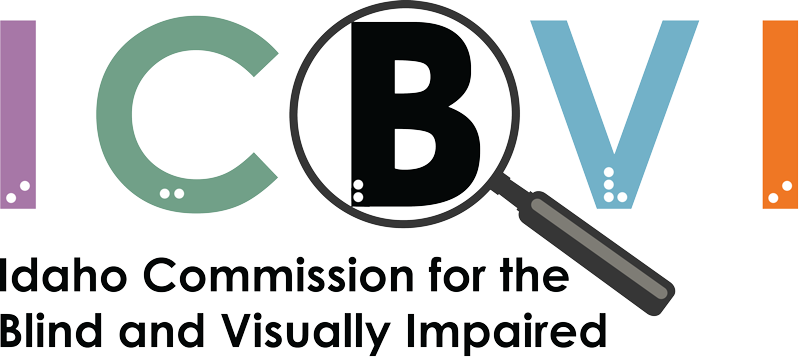The Independent Living Program is designed to teach blind and visually impaired people to adjust, function, and live as independently as possible within their home and community settings. Services are provided by qualified rehabilitation teachers who work with clients in their own homes and communities. There is no cost for a teacher to meet with you and introduce the training and adaptive aids that may assist you with improving your independence in your home and the community.
Eligibility:
- Do you have trouble reading the newspaper, dialing your phone, or writing a check?
- Do you struggle to see faces on the television and have difficulty changing channels with your TV remote control?
- Do you have trouble setting your microwave, your thermostat, or the dials on your stove?
- Do you miss crafts and hobbies because your vision loss prevents you from doing them anymore?
- Do stairs and curbs trip you up? Does glare make it harder for you to see when you go outside? Does the light bother your eyes?
- Has your doctor told you there is nothing more they can do to correct your vision loss?
If you answered “yes” to one or more of these questions, you may be eligible for independent living services. Eligibility is based on the extent of an individual’s vision loss, and the difficulty that they are having performing daily tasks due to the loss of vision. To find out if you are eligible for services, contact the rehabilitation teacher in your area.
Services Available:
A rehabilitation teacher can visit you at your home and provide an evaluation to determine your individual needs and specific goals in order to assist you with improving your independence in your home and community.
Low Vision Aids:
Depending on your needs, an teacher can recommend a variety of effective magnifiers, adaptive aids, and proper lighting. These recommendations are tailored to your visual needs and typically can address most of your concerns. Recommended adaptive devices can be provided at no cost to persons who qualify for financial assistance.
Counseling:
While independent living teachers do not provide certified counseling services, a teacher can work with you and your family to better understand your vision loss. A teacher can also help you and your family to better understand your actual potential with your visual impairment, which is usually much greater than what you and your family perceive. Support group information and alternate resources for transportation will be provided if available in your area.
Activities of Daily Living:
Many people don’t know there are simple and effective methods for performing everyday tasks. Learning and using these techniques can reduce the frustration of pouring liquids, preparing meals, dialing the phone, identifying clothing, managing medication, and accurately telling time. A rehabilitation teacher can provide this instruction to you at no cost in your home.
Alternative Communication Skills:
Rehabilitation teachers teach alternative methods of reading and writing. Depending on the individual, adaptive reading can include using a magnifier, accessing large print, or listening to books on tape. Instruction can also be provided regarding the use of writing guides, bold line paper, bold pens, and large print checkbook registers.
Large print computer keyboard labels and the use of adaptive computer software such as magnification programs and talking programs for the computer may also assist some clients who are computer users.
Orientation & Mobility:
A teacher is also available to teach residential and community travel techniques using a long white cane, a white support cane, or a sighted guide. These safe and effective techniques can make travel less frustrating and safer.
Personal Management:
A teacher can also provide training regarding alternate techniques for bill-paying, managing a bank account, money identification, and recording keeping. An teacher will tailor the training to meet your individual needs and preferences. Please click on the following link for an informational guide to independence. ICBVI Guide to Independence
Contact Info:
The Idaho Commission for the Blind And Visually Impaired (ICBVI) has six regional offices.
If you are unable to reach one of the contacts listed above in your area, please contact Steve Achabal, Independent Living Coordinator in the Boise Office at (208) 639-8366 or by email at sachabal@icbvi.idaho.gov
For additional services please visit the following links:
| Region | Address | Contact(s) | Phone Number |
|---|---|---|---|
| Coeur d'Alene (Region 1) | 2120 N. Lakewood Dr, Ste A Coeur d'Alene, ID 83814 | Tyler Kuisti | Phone: (208) 769-7077 |
| Lewiston (Region 2) | 1118 F Street Lewiston, ID 83501-1986 | Gayle Worthington | Phone: (208) 799-5009 |
| Boise (Region 3) | 341 West Washington Street Boise, ID 83702 (83720-0012) | Marcie Chapman Deeann Solis Kebbie Young | Phone: (208) 334-3220 |
| Twin Falls (Region 4) | 650 Addison Ave W, Ste 101 Twin Falls, ID 83301 | Diana Lerh | Phone: (208) 736-2140 |
| Pocatello (Region 5) | 427 North Main, Ste K Pocatello, ID 83204 | April Mills | Phone: (208) 236-6392 |
| Idaho Falls (Region 6) | 1920 East 17th St, Suite 115 Idaho Falls, ID 83405 | Jennine Dixon | Phone: (208) 525-7028 |

